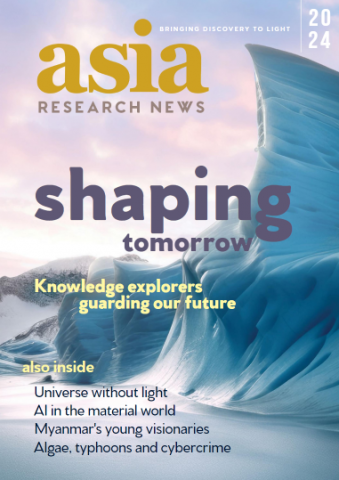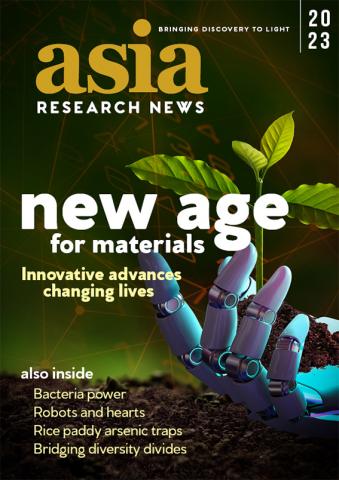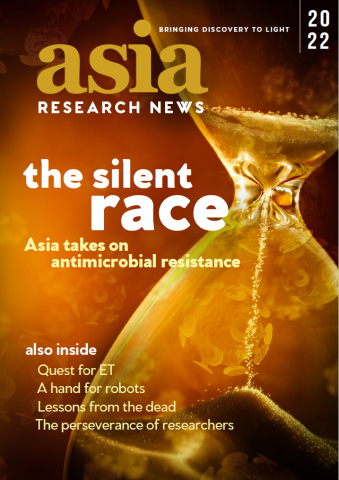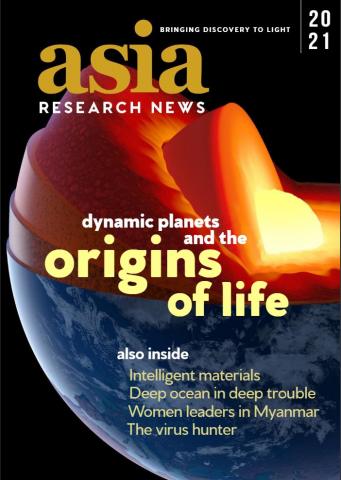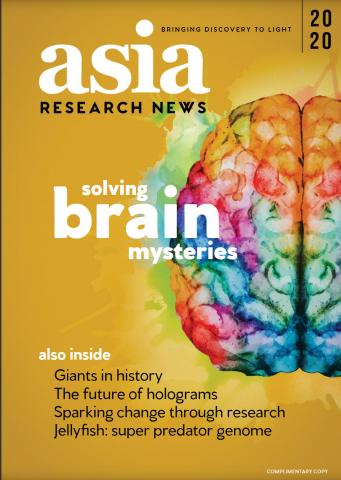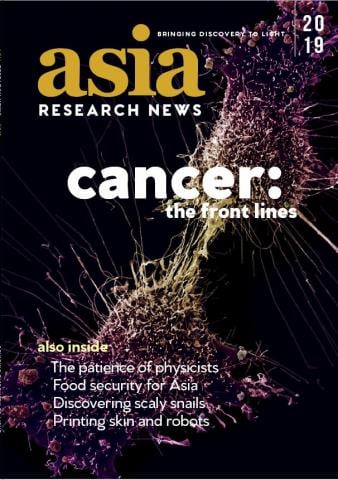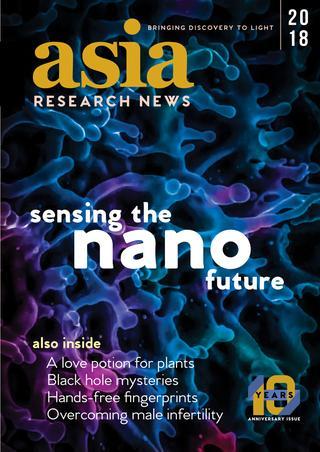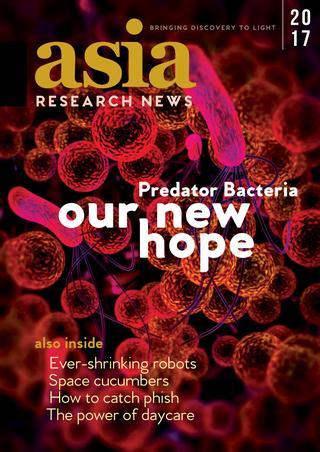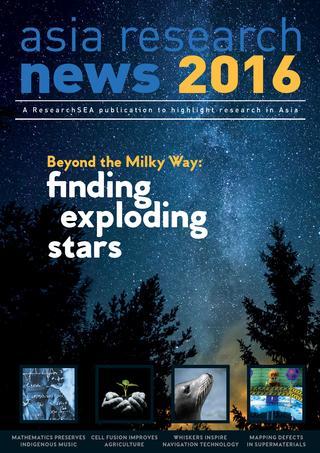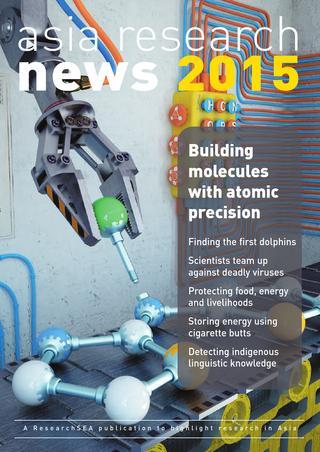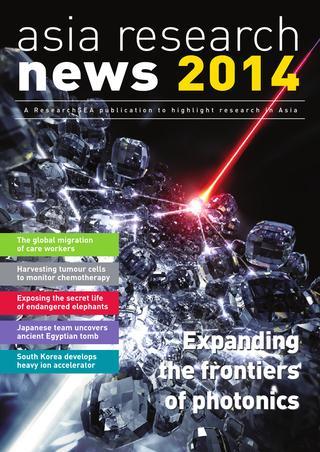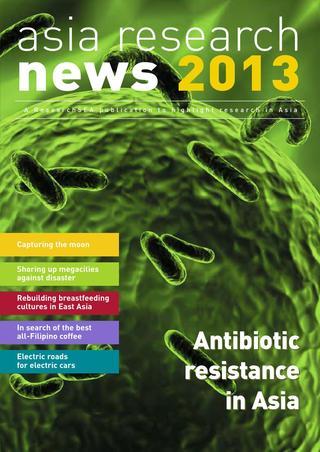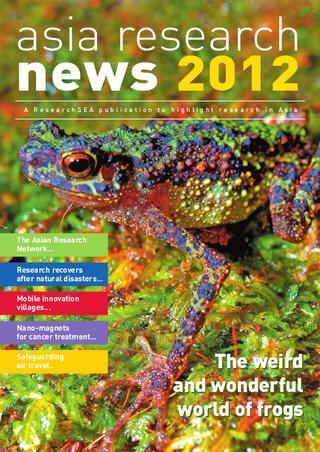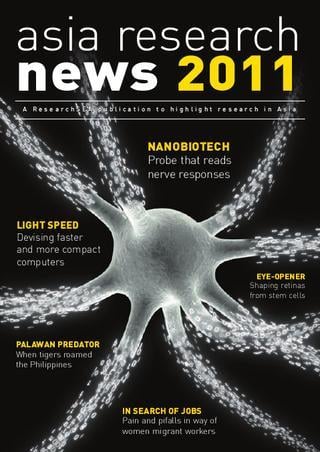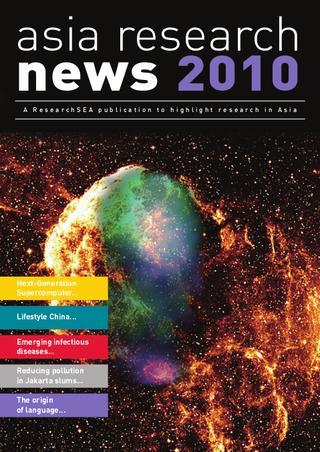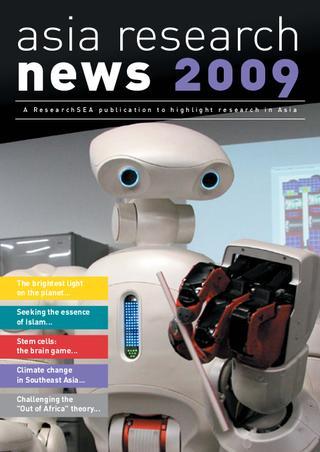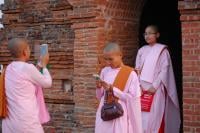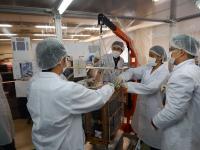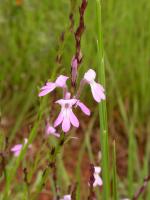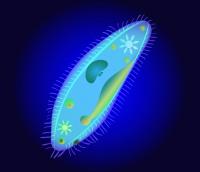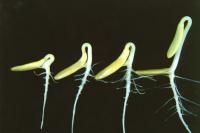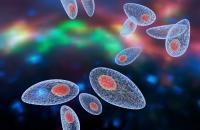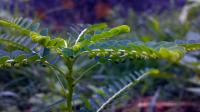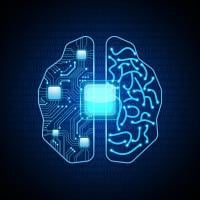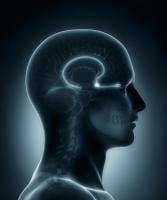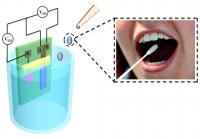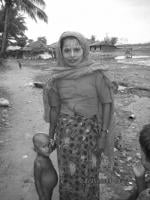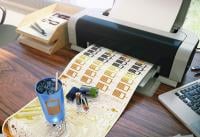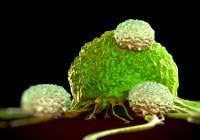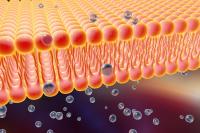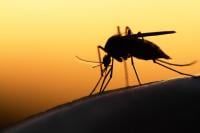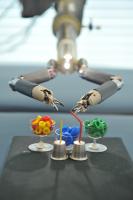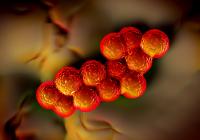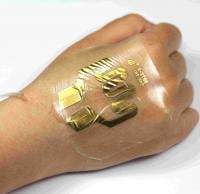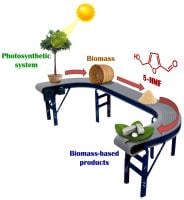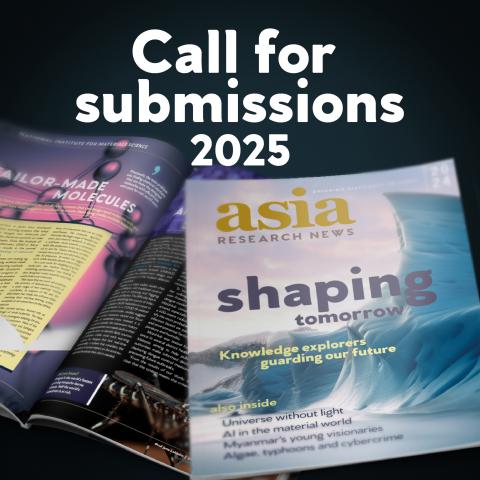2017
Read past issues:
2017 Magazine articles
Dialling in: Increasing Internet penetration in MyanmarInternational Development Research Centre (IDRC)Researchers are helping Myanmar transition to an inclusive, networked economy that gives citizens access to technology and services.
|
|
Harnessing energy from glass wallsKorea Advanced Institute of Science and Technology (KAIST)A Korean research team has developed semi-transparent perovskite solar cells that could be great candidates for solar windows. |
|
Philippines' first microsatellite captures ultra-high-resolution imagesHokkaido UniversitySatellite success is a big step forward for the Philippines and for broader efforts to establish a microsatellite consortium across Asia. |
|
Taking control back from the cloudThe Agency for Science, Technology and Research (A*STAR)A user-controlled file security scheme makes it possible to instantly revoke access to files hosted on Internet cloud servers.
|
|
Making molecules that twinkleThe Agency for Science, Technology and Research (A*STAR)A single-step process transforms carbon dioxide into star-shaped molecules that are promising building blocks for useful polymeric materials. |
|
Witchweed: destructive by natureInstitute of Transformative Bio-Molecules (WPI-ITbM), Nagoya UniversityScientists in Japan have designed a synthetic molecule that gives new insight into how a destructive weed might be detecting its host crops. |
|
Strengthening the governance of Islamic banksUniversiti Teknologi MARA (UiTM)Although the Islamic finance industry is growing at a rapid rate, researchers have highlighted areas of governance that must be reformed. |
|
Microrobots inspired by natureDaegu Gyeongbuk Institute of Science and Technology (DGIST)A revolutionary design mimics the rowing action of the cilia on single-celled Paramecium, demonstrating much faster movement than conventional microrobots. |
|
Space cucumbers reveal secrets of plant survivalTohoku UniversityBiologists in Japan use the near-weightless environment on the International Space Station to study the influence of gravity on plant growth phenomena. |
|
Transparent metal touchscreensThe Agency for Science, Technology and Research (A*STAR)Roll-to-roll printing of a conductive metal ink offers an inexpensive, high performance alternative to today’s touchscreen technology. |
|
Turning a toxoplasma protein into a tool against infectionUniversity of MalayaUnderstanding how the toxoplasmosis parasite invades cells could result in a vaccine candidate against the disease. |
|
The cancer-killing power of plantsAsia Research NewsResearchers are uncovering specific ways that plant extracts target and kill cancerous cells in the breast and colon. |
|
Mitigating floods with an electronic brainUniversiti Putra Malaysia (UPM)A computer model that can ‘learn’ like a human brain could help water resource managers reduce damage in cases of extreme flooding. |
|
Spinal injury: The healing power of the brainQatar UniversityNeural stem cell therapies could eventually play a role in treating spinal cord injuries. |
|
Increasing the capacity of optical transmissionThe University of Nottingham Malaysia CampusA multilevel modulation format developed by University of Nottingham Malaysia Campus researchers shows clear advantage in achieving longer fibre-transmission distances. |
|
Shining light on diseaseNagoya UniversityCyanine dyes could improve the efficiency of using molecular probes to identify, for example, the presence of a virus or a tumour receptor. |
|
Smart homes enhance seniors' safetySingapore Management UniversitySensors are being used to increase the safety of seniors living independently in their own homes. |
|
A pain-free testing device for diabetes patientsThe Hong Kong Polytechnic University (PolyU)A new biological sensor can detect glucose levels in saliva more accurately and cost-efficiently than the conventional blood test. |
|
Rohingya refugees from Myanmar: Negotiating a better lifeAsia Research NewsRohingya refugees living in a camp in Bangladesh have developed a multi-dimensional social fabric that is more complex than the common refugee narratives depicted in some reports. |
|
Inkjet-printed batteries bring us closer to smart objectsUlsan National Institute of Science and Technology (UNIST)A rechargeable power source printed onto normal paper using a standard inkjet printer could pave a new way for a wide range of ‘smart’ objects. |
|
Improving the health of fragile tribes in MalaysiaUniversiti Teknologi MARA (UiTM)Genetic studies on Malaysia’s Orang Asli peoples could lead to tailored medical advice that is more appropriate for their unique makeup.
|
|
Purifying cells to treat diseaseKyoto UniversityRefining the purification process of therapeutic cells could improve their use for treating cancer and other diseases. |
|
The key to private and efficient data storageThe Agency for Science, Technology and Research (A*STAR)Cloud storage services, like Dropbox and Gmail, may soon be able to better manage your content, giving you more storage capacity while still being unable to ‘read’ your data.
|
|
Solving a cell membrane mysteryInstitute for Integrated Cell-Material Sciences (iCeMS) at Kyoto UniversityScientists have developed new fluorescent probes that prove the existence of cell membrane structures called ‘lipid rafts’, allowing researchers to study how toxins and viruses invade cells. |
|
Understanding malaria with mathematicsUniversiti Malaysia SarawakMathematical formulas that model how deadly mosquito-borne diseases spread can help medical researchers accurately predict how real-life outbreaks develop and find countermeasures. |
|
Space technologies improve surgeries back on earthThe Hong Kong Polytechnic University (PolyU)Researchers in Hong Kong have developed a novel surgical robotic system that provides tactile feedback and is capable of single-incision and natural orifice (incision-free) robotic surgery. The system minimizes surgical trauma and is safer than currently available robotic systems. |
|
Predatory bacteria: The new 'living' antibioticUlsan National Institute of Science and Technology (UNIST)Antibiotic resistance is one of medicine’s most pressing problems. Now, a team from Korea is tackling this in a unique way: using bacteria to fight bacteria. |
|
Catching those nasty, leaky dripsThe Agency for Science, Technology and Research (A*STAR)A new adhesive sensor can save patients the discomfort and pain resulting from leaky intravenous drips. |
|
Greening the pharma industryZelinsky Institute of Organic Chemistry, Russian Academy of SciencesSynthesizing life-saving pharmaceuticals from natural biomass can be more cost-efficient than traditional methods and produces fewer toxic byproducts. |
|
Speaking the language of microstructuresNational Institute for Materials Science (NIMS)A common language for computer software tools that describes materials at their smallest scale could lead to designing faster and better materials. |


